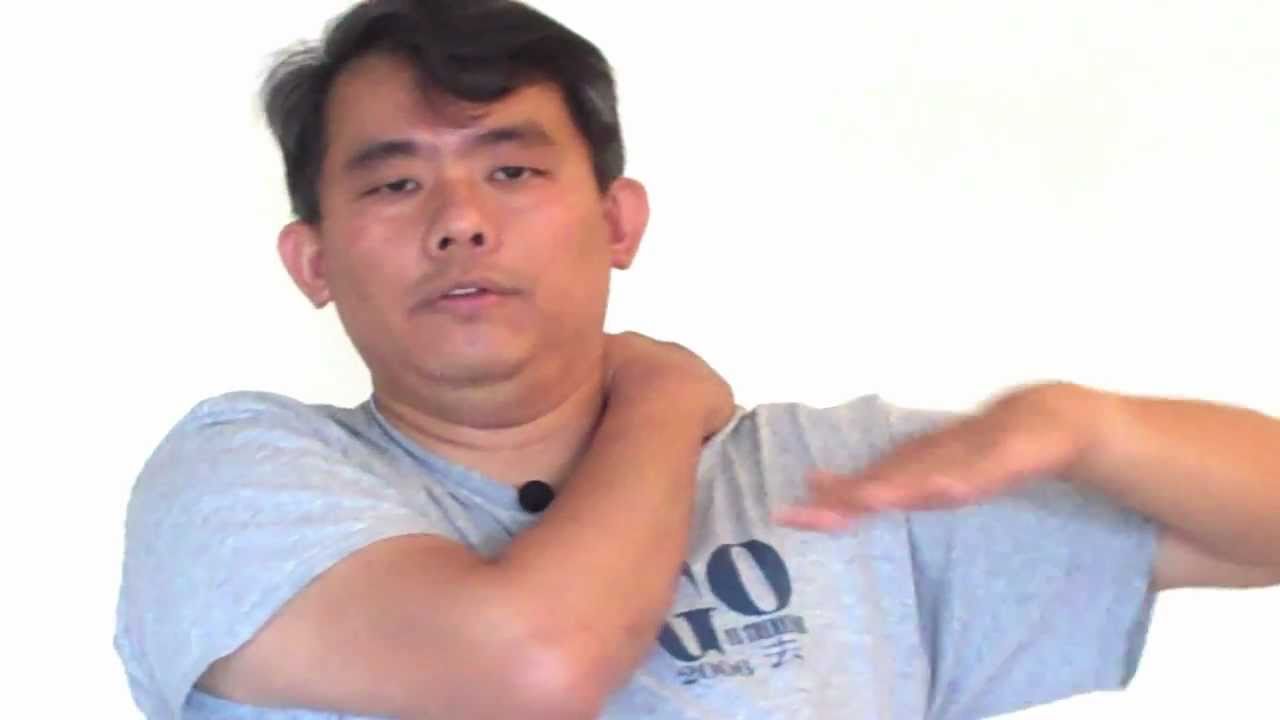http://www.stressedoutstressfree.com/?p=5012
Shoulder Blade Pain
About two weeks ago I received two emails from my "Ask A Question" section on my blog one asking about ankle pain (which I'm still working with her with more questions) and another with shoulder blade pain from golfing.
I have referred to the shoulder pain reader Pain In The Shoulder http://www.stressedoutstressfree.com/stressed-with-a-pain-in-the-shoulder/ and on Posture http://www.stressedoutstressfree.com/how-to-sit-straight/ for the time being because at that time, I was having a problem with my Mac and had to be sent in to Apple to be fix.
In This Video You Will Find:
– The cause
– How to identify a good muscle and a pain muscle
– How to prepare the muscle
– Technics and tip on how to work on the muscle yourself
ENJOY!
Transcript for Today's Video:
Hi welcome to another video. My name is Vincent Woon in this video I'm going to answer a question form my "ASK A QUESTION" section of my blog from one of my readers.
Due to privacy policy I've copy an paste our email conversation to Pages. The question was asking for help with pain under shoulder blade.
He said he found my videos in YouTube and went on to my blog and this is his story. He said have sudden pain under his left shoulder blade & at first he thought it was a torn trapezius. He googled and found this website and showed me the picture here which is the subscapularis muscle and went on pain when he lift his arm up over his shoulder and at the same time lean forward or sideways. Also painful when he is coughing.
He discovered that if he pull his shoulders back real tight cough, there's no pain.
He went on and he said he can't think of anything specific but he mention intense golf – haven't played for 10 years & started playing a lot for 3 weeks now he is hitting 50 in a couple of months. And haven't sort any medical/chiropractic or physiotherapy help yet
I asked him if he can point out where the pain/pains is? Whether it's in middle left or upper right of the subscapularis muscle base on the pic on the link he sent me.
He said it's feel's like it's under the shoulder blade but suspect it's something else and sent me to this website.This site explain the symptoms of where he thinks the pain is. BUT Can't really id which point he feel the pain – how should he go about locating the point? By pressing on it? How should it feel?
Ok! I'm going to show you three steps to shoulder blade reliefNumber one to locate where the pain is, In order to locate where the pain is, you have to figure out what is a good muscle and what is a pain muscle.
How do you figure out what is a good muscle and a muscle in pain? A good muscle should feel like, for instance there's no pain on your arm you just touch here, see how mushy it is how bouncy it is. It's nice and soft, the muscle feels like normal..no pain.
He said he had a pain on the left shoulder so in order to compare to that he has to press to feel the right shoulder and see if there's a difference. The right shoulder he should feel soft and mushy nice and no pain just like how we felt on the hand and on the pain area you will feel tightness and when you press on it you will feel the pain. The tightness is what we call knots.
Now that we know the difference between a good muscle, a pain muscle or tight muscle..When we work on it you can feel how the tight muscle will become the soft muscle and you can see the difference.
Second step is to loosen the muscles in the area. What you need to do is look for a wall hand on the wall. 90º for the middle of the shoulder blade, 45º is for the lower part of the shoulder blade, 135º is for the upper part of the shoulder.
135º for the upper part, 90º for the middle of the shoulder blade, 45º is for the lower part and let take a look of the side view, one step forward hand on the wall and stretch make sure you bend your knees.
Let's take a look at he front view, step forward and stretch make sure your knee is bend.
Now that we have number one locate where the pain is, number two loosen it up and number three I'm going to show you how to work on it. We go straight to the point of the area where you feel the pain, put some pressure on it, Make sure you use the tip of your fingers, here finger pads press on it and then move backwards, forwards, backwards, forwards. Let me show you the front view backward, forwards, backwards and forwards, back and forward.

